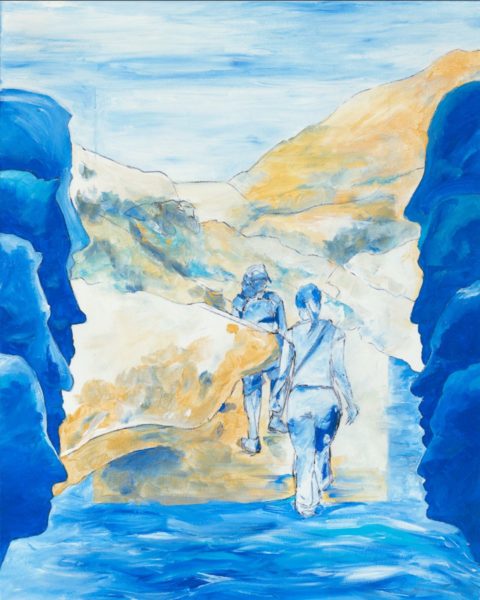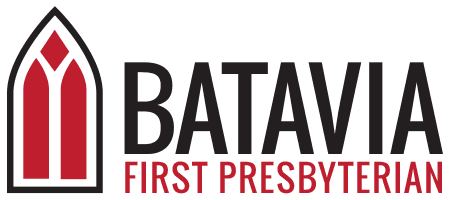
Weekly Bible Devotional
“Unraveled: The Unraveling of the Mind”
August 29, 2020
Scripture for This Week: Mark 5:1-20They came to the other side of the sea, to the country of the Gerasenes. 2 And when he had stepped out of the boat, immediately a man out of the tombs with an unclean spirit met him. 3 He lived among the tombs; and no one could restrain him any more, even with a chain; 4 for he had often been restrained with shackles and chains, but the chains he wrenched apart, and the shackles he broke in pieces; and no one had the strength to subdue him. 5 Night and day among the tombs and on the mountains he was always howling and bruising himself with stones. 6 When he saw Jesus from a distance, he ran and bowed down before him; 7 and he shouted at the top of his voice, “What have you to do with me, Jesus, Son of the Most High God? I adjure you by God, do not torment me.” 8 For he had said to him, “Come out of the man, you unclean spirit!” 9 Then Jesus asked him, “What is your name?” He replied, “My name is Legion; for we are many.” 10 He begged him earnestly not to send them out of the country. 11 Now there on the hillside a great herd of swine was feeding; 12 and the unclean spirits begged him, “Send us into the swine; let us enter them.” 13 So he gave them permission. And the unclean spirits came out and entered the swine; and the herd, numbering about two thousand, rushed down the steep bank into the sea, and were drowned in the sea.
14 The swineherds ran off and told it in the city and in the country. Then people came to see what it was that had happened. 15 They came to Jesus and saw the demoniac sitting there, clothed and in his right mind, the very man who had had the legion; and they were afraid. 16 Those who had seen what had happened to the demoniac and to the swine reported it. 17 Then they began to beg Jesus to leave their neighborhood. 18 As he was getting into the boat, the man who had been possessed by demons begged him that he might be with him. 19 But Jesus refused, and said to him, “Go home to your friends, and tell them how much the Lord has done for you, and what mercy he has shown you.” 20 And he went away and began to proclaim in the Decapolis how much Jesus had done for him; and everyone was amazed.
Theme Connections:
A man shunned from town and labeled a demoniac lives with the daily unraveling of his mind and is tortured by a legion of voices, which impel him to violently self harm. But perhaps he could perceive something the townspeople could not when he sees Jesus approaching the shoreline, for he breaks free from his shackles and bows at Jesus’ feet. His healing disrupts the status quo of the town, as a herd of pigs drown to their death and the townspeople fear the consequences of Legion being set free. How do we respond when the status quo—of our towns, churches, families—is disrupted? How can we better care for those whose minds have unraveled into illness?
What Has Unraveled and/or Is Unraveling?
• Legion’s mind and his social connection to the community have unraveled.
• The status quo of the town unravels by the disruption of Legion’s healing and the death of the herd of pigs.
• Legion’s identity as a feared outsider unravels when he is healed and he transforms into a passionate evangelist.
Guiding Questions:
• Imagine this story through the lens of fear. How does fear impact each of the characters?
– The disciples: Just prior to this event in Mark’s gospel, Jesus calms the wind and the waves. They likely arrive on shore desperate for dry land, yet confused about why they are in the land of the Gerasenes, a Gentile territory. Do they see Legion when he comes running to Jesus? Do they fear Jesus’—and their own—safety when he comes near?
– Legion: As an outcast with an unraveling mind and no support system, his interactions with everyone are most likely fraught with fear. The only people who come close do so to try to wrestle and chain him back into the tombs. Perhaps the voices in his head assault him daily with fears and self-loathing. Perhaps much of his existence consists of fearing others and fearing himself. But when Jesus steps foot on the shore, he sees something the others don’t recognize. Fearlessly, Legion runs toward this stranger, not to hurt him, but to bow down in reverence at his feet. After Jesus heals him, he tells Legion to go “home” to the town, to counter the fear of the people with the good news of what God has done for him.
– The townspeople: When the townspeople see Legion healed, they are filled with fear (Mark 5:15). When they learn about the killed swine, they beg for Jesus to leave (Mark 5:17). Why do they fear Legion’s healing? Have they stigmatized and marginalized him so much that they can’t imagine he is truly well? Are they afraid Jesus will disrupt more elements of their community, threatening their economic stability?
• Who do you identify with the most in this story and why?
• Rewrite the end of the story. How could the townspeople respond to Legion’s healing instead of with fear and by forcing Jesus away? How might you and your community attempt to live into this better vision?
Quote for Inspiration:
“Jesus’ authority effects an amazing transformation from terror to wholeness. The details of the ‘before’ and ‘after’ are stunning. Once naked, banished from the city, living in the caves, convulsive, kept unsuccessfully under guard, totally uncontrollable, he becomes a disciple of Jesus, sane and appropriately clothed. The Greek participle translated ‘in his right mind’ (Luke 8:35) is the same characteristic Paul urges for all Christians (‘sober judgment’ Rom. 12:3). It is hard to improve on the pictures of transformation painted in the narrative itself.”
—Charles B. Cousar, Beverly R. Gaventa, J. Clinton McCann, Jr., James D. Newsome. Texts for Preaching: A Lectionary Commentary Based on the NRSV, Year C. Louisville, KY: Westminster John Knox Press, 1994. 399.
Read this article about a pastor reflecting on this story and his own journey with mental illness: “Coming Out as Bi(Polar).” Aaron Maurice Saari. Published on Patheos. July 9, 2015.
https://www.patheos.com/blogs/faithforward/2015/07/coming-out-as-bi-polar/
From the artist // Hannah Garrity:
Have you ever seen the illustration of equity vs. equality? There is a young child standing next to a young teenager and an adult. They all wish to see over a fence. In the description of equality, they each get a box that is the same size. The adult now towers over the fence, the teenager can see, but the child is still unable to see what’s on the other side. In the depiction of equity, they each get a different sized box. Now, all of their heads are peering comfortably over the fence. Why are we afraid of equity? In the land of the Gerasenes, Jesus shows us what it looks like. He provides healing for an outcast of society, the man shows gratitude, and he evangelizes. This sounds like a moment we would rejoice in. Instead the townspeople beg Jesus to leave. Do they fear scarcity? But we know that God provides in abundance. Do they fear grace? But we yearn for God’s grace. Do they fear for their safety? Why do humans fear the radical grace of God? Why did the people of Gerasene fear Jesus? We laud Jesus’ work in the gospel as the work we must replicate. We teach our children to think of what Jesus would do. However, time and again history shows us that when we truly work toward the embodiment of the gospel, humans interrupt the work. Humans killed Jesus.
Look:
Take a few moments to gaze upon the artwork. Breathe deeply in quiet meditation as you observe the visual qualities of what you see: color, line, texture, movement, shape, form.
Now take a deeper look. What parts of the image are your eyes most drawn to? What parts of the image did you overlook?
Now engage your imagination. What story do you imagine for each of the figures?
Reflect:
– What has unraveled and/or is unraveling in this story?
– Imagine this story through the lens of fear. How does fear impact each of the characters and their actions?
– Whom do you identify with the most in this story and why?
Write:
Rewrite the ending of this story. How could the townspeople respond to Legion’s healing instead of with fear and by forcing Jesus away? What would it look like for the community to welcome and embrace Legion?
Pray:
Unravel my temptation to marginalize those I fear or do not understand so that all may be welcomed home. Amen.



